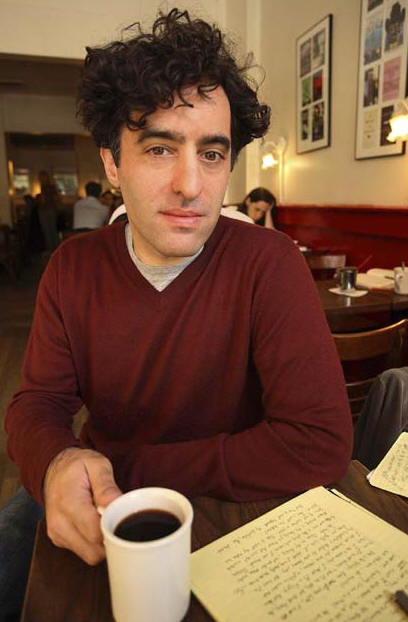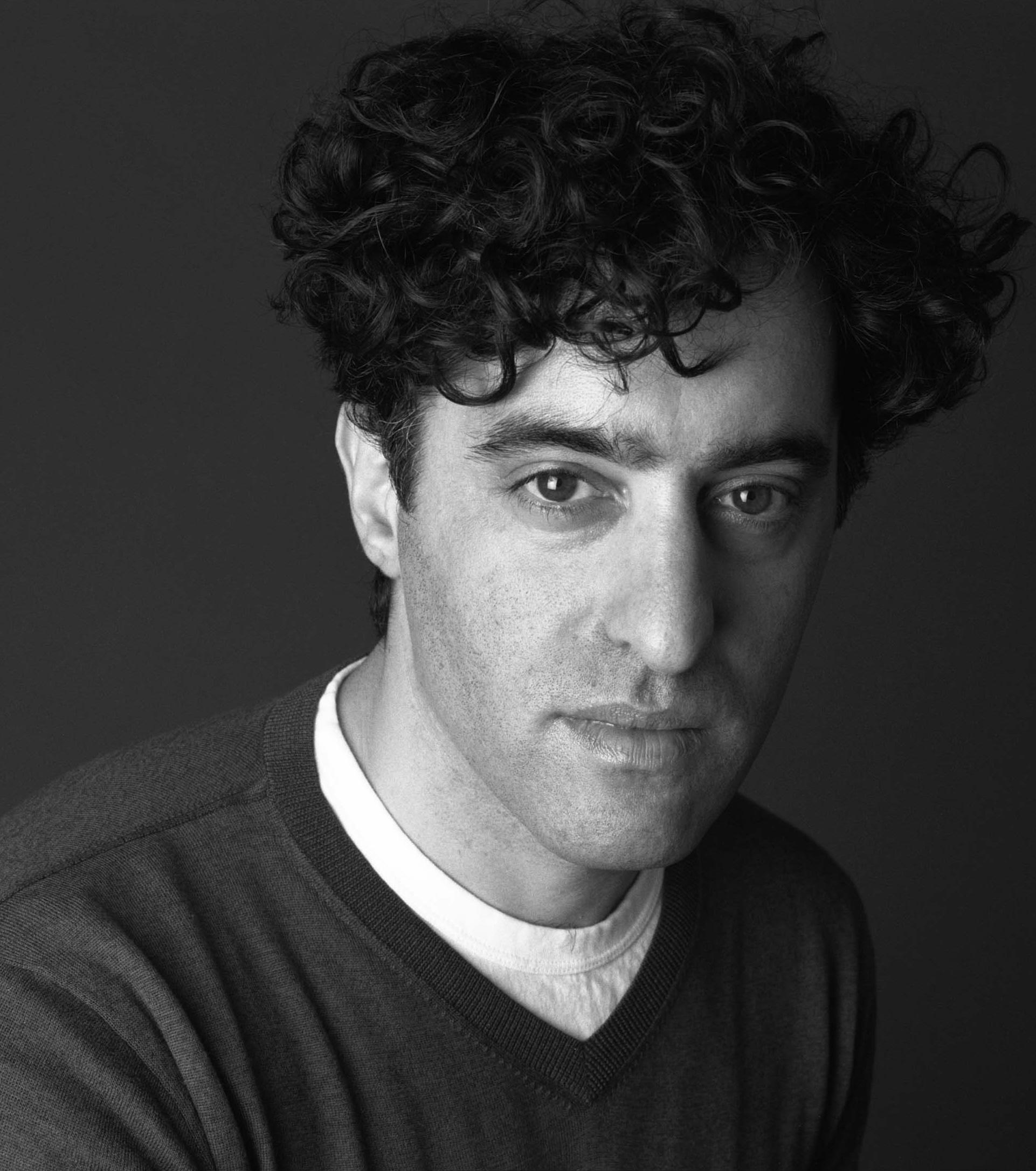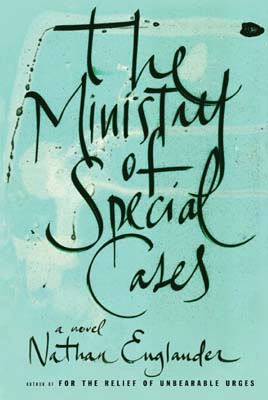Copyright ©2007 PopEntertainment.com. All rights reserved.
Posted:
May 26, 2007.
Nathan
Englander's first novel, The Ministry of Special Cases (Knopf) is a
shattering experience, told in a deceptively simple manner. In it, a Jewish
family in 1970s' Buenos Aires is torn apart when their college-age son is
taken away by the government, along with thousands of others, for reasons
that are not given.
Like
that, he is "disappeared," as it is called, almost as if he never existed at
all.
The
emotional and bureaucratic nightmare that ensues spirals you down through
the seven circles of Hell. In trying to track him down, get him back,
persuade
government officials – or even neighbors and friends – to talk or give the
slightest clue of his fate – tests the resolve of the boys' parents on every
level, from psychological to financial.
These
humble but strong people stop at nothing – not even the threat on their own
lives – to find their son and bring him home.
Fiction?
Hardly. This particular account is indeed fictional, but it is set against
the dark chapter of Argentina's so-called Dirty War (1976-1983). During that
time, thousands of citizens were "disappeared," most likely in the name of a
paranoid right-wing government desperately afraid of revolution and trying
to keep control.
Most of
the disappeared have never been recovered, and their whereabouts remain a
mystery. This tragedy has left behind a grieving living mass of destroyed
families in Argentina and even beyond, in neighboring countries. These
relatives will never feel whole again, will never know closure; they still
demand answers, all these many years later. Even today, with DNA testing and
a sympathetic media focused on the event, resolution is all-too slow in
coming.
To add
salt to the wound, the government officials allegedly responsible for these
crimes have been mysteriously pardoned by the succeeding government. And it
has been recently discovered that Washington gave The Dirty War its
blessing. Even Secretary of State Henry Kissinger encouraged the actions in
1976 (warning the Argentines doing the abducting that they should act fast,
before the American Congress is back in session).
 Nathan
Englander – this being his first novel despite being far from the action –
pulls off quite a feat. Raised on suburban Long Island as an Orthodox Jew
and now living in Manhattan as "radically secular," he makes the sweaty
nightmare feel unbearably real.
Nathan
Englander – this being his first novel despite being far from the action –
pulls off quite a feat. Raised on suburban Long Island as an Orthodox Jew
and now living in Manhattan as "radically secular," he makes the sweaty
nightmare feel unbearably real.
He first
drew attention to his honest and boldly told stories in The Atlantic
Monthly and The New Yorker, as well as The Best American Short
Stories and The O. Henry Prize Stories. These stories were
collected in his well-received For The Relief of Unbearable Urges.
On a
beautiful spring morning at the Hungarian Pastry Shop near Columbia
University, we discuss the book and the fact that history can repeat itself;
that, as we have learned from the war in Iraq, even the most perverse
actions of a government can become ordinary and matter of course.
You are not from
Argentina and do not have any direct association with The Dirty War, and yet
your novel makes the reader feel like you've experienced it first-hand. How
did you pull this off?
I like a
pressurized story, this idea of a family unit being forced to have these
growing pains together.
I also
wanted to look at a community where certain people pretend that other people
are pariahs. Yet the community can't actually exist without these so-called
pariahs. They pretend they have this great shame of them, but [the
community] wouldn't know who it was without them.
I like
to write "distant." I feel safe at a distance. I partly attribute it to
these Argentine friends I have who grew up in this period. I heard stories
from them and I also didn't hear stories. It was what they weren't saying
that was interesting to me. Years later, I would be sitting in the car with
my [Argentinian] friend, and he would start to talk, and then it would be
three hours later.
You depict the
atmosphere as cold and threatening. Trust no one.
As a
paranoid myself, I like paranoid stories. It's the age-old joke: just
because you're paranoid doesn't mean somebody's not going to get you. Was
Pato [the young character in the book who goes missing] really a
revolutionary, or was it that he just smoked some reefer or he learned some
ideas in school that he spouts? The government then says, "you want to be a
revolutionary? We'll treat you like one."
There is also the
nightmare of government bureaucracy, no matter who is in power.
It's the
frustration of trying to get stuff done. When I moved to Jerusalem, I had a
very similar experience [with government bureaucracy]. It could be so
overwhelming. I'm not even talking about government oppression. I'm talking
about getting that parking sticker, or just signing up for that bank
account. So I became interested in what it would be like to live in that
kind of world.
 The
book address relationships on so many levels, from deeply personal family
bonds to community prejudices to how a government treats its people.
The
book address relationships on so many levels, from deeply personal family
bonds to community prejudices to how a government treats its people.
The book
is so many different things to me. I was just getting yelled at by someone
who said that the book is really about fathers and sons [and not a political
story]. I wasn't writing a warning book. I wasn't writing a political book.
I was telling this story that takes place during The Dirty War, but
hopefully all of those other things feed in.
The story takes place
in the not-too-distant past, where it's rather shocking – in a modern day
and age – that such fascist tactics can be applied to a contemporary people.
The book
is really about time, a continuum. How much do we use hindsight? Everything
is history. Even the Holocaust happened under the most modern circumstances
for the time.
People
[in North America] tend to think of [people in South America] as so distant
and so foreign, but they have a functioning middle class there. In that
story is the element of the need to "move up." You need that option – that
dream – of getting somewhere.
How did you manage to
put such a complicated story together and tell it in such a clear and
concise way?
I wanted
to build my story first, and then I have this very strange process where I
research after the fact.
For
instance, I had a character kicking a can of soda down the street, and in my
research, I discovered that they hadn't had canned soda in Argentina until
1983 or something like that. I don't want to spend ten years on a book and
then bum an Argentine reader on page five about something that should have
been knowable and do-able [to me]. I feel that is the writer's obligation.
 Anything
I make up I make up and anything I alter I alter. I want to know if it's
right. This book is all about what it is to love a city, and I want it to
be right.
Anything
I make up I make up and anything I alter I alter. I want to know if it's
right. This book is all about what it is to love a city, and I want it to
be right.
This is a fictional
account of a frighteningly real event. The legacy of the Dirty War in
Argentina presents grieving families still looking for relatives who had
disappeared decades ago.
That's
the horror of all of this. It's the way they talk about Iraq now. That's
when you understand when you have chaos. The numbers of missing could be
anywhere between four (thousand) and thirty-thousand people. I mean, what is
it? Give or take twenty thousand? It's insane. They are still finding stuff.
They are still digging. They are still doing DNA testing. They are still
looking. It doesn't end. I just went down there two months ago and wrote an
essay about it. It's shocking to me that there are people still looking for
their kids and grandkids.
After ten years of
working on this project, how does it feel to finally have the book in
print?
Strange.
It's like having a new identity for just this period. That's all. It's like
building another version of me for a little while.
Email
us Let us know what you
think.
Features
Return to the features page.

Copyright ©2007 PopEntertainment.com. All rights reserved.
Posted:
May 26, 2007.